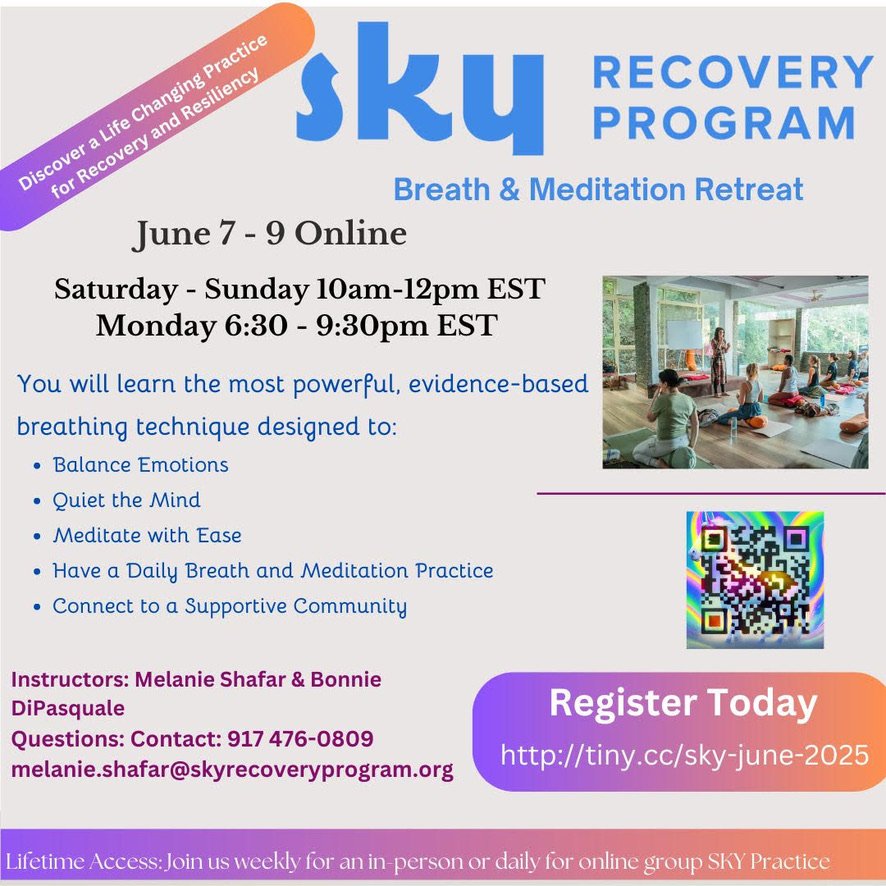Reading Time: 2 min 0 sec
I hope the next 24’ish breaths are the most nourishing of your day.
4 THOUGHTS
1. Breathing for Better Brain Health Workshop
A reminder that I am teaming up with Eddie Stern to bring back the Breathing for Better Brain Health workshop on June 8th. In it, you’ll learn the science of how breathing affects our brains, plus practical ways of applying that wisdom. And since it’s Eddie and me on the same Zoom, you will get lots of humor, Q&A, and random tangents.
Click here to learn more and save your spot.
2. Meditation, Puzzle Pieces, and a More Meaningful Life Image
“This is what meditation enables us to do. In meditation we take an inspiring ideal…and set it before us morning and evening…An ideal like this gives us a picture to keep our eyes on throughout the choices of the day, so that little by little we can rearrange the pieces of our lives.”
- Eknath Easwaran, Climbing the Blue Mountain
I’ve recently taken a wholehearted plunge into practicing Passage Meditation. And although I shortened the passage, this analogy from Easwaran sums it up perfectly: Just like you need the picture on a puzzle box to know how to start, meditating on an inspiring passage gives you a clear ideal to guide your day. As life hands you pieces—stressors, setbacks, successes, failures—you can more easily fit them into a meaningful life image 👏
3. The Nose vs. the Vagus Nerve
“The emerging scenario strongly suggests that the effects of SNB [slow nasal breathing], beyond the relative contribution of vagal stimulation, are mainly ascribable to olfactory epithelium stimulation.”
Here’s another paper I’ve shared before that’s worth revisiting. It’s a fascinating study showing that the nose may be just as vital as the vagus nerve for getting the physiological and psychological benefits of slow breathing.
Check out this post that describes it in detail. We’ll also go over it in detail in the workshop.
4. Trust is Synonymous with Calm
“Trust is actually synonymous with calm.”
– Paul Loomans, I’ve Got Time
A wonderful reminder that if you can be a source of trust for others, it will help them feel calm. And if you can be a source of trust for yourself, it will help you feel calm, which is why breathing and meditation are so helpful for relaxing the nervous system.
1 Quote
“‘Is there a life after death?’
…
Nobody seems to be grappling with the problem of: Is there a life before death?”
1 GOOD BOOK
Awareness by Anthony de Mello
This is one of my favorites in the recent past. De Mello’s wisdom was genuinely life-changing for me. Also, I highly recommend the audiobook version—he’s hilarious, and reading the words doesn’t do it justice. (I often randomly put it on while walking because it’s so funny and full of wisdom that it never gets old.) I hope you’ll check it out!
In good breath,
Nick Heath, T1D, PhD
“Breathing is the compound interest of health & wellness.”
Enjoy these posts? Donate to say thanks!
P.S. one step above the Irish goodbye
SKY Recovery Program
My dear friend Colleen Loehr, MD, is co-teaching an online course for the SKY Recovery Program from June 7th to 9th. The course is open to anyone—people in recovery and people who have a friend or loved one with an addiction problem. The fee is only $95, so it’s an inexpensive way to learn the SKY technique for recovery and addiction. Click here to learn more about it. 🙏
The Breathing App for Diabetes
This is the first program specifically made for people with diabetes to help manage their stress through breathing and mindfulness practices. In addition to the amazing program inside the app, we have some really neat things coming up, so sign up now!
Amazon Associate Disclosure
I’ve been recommending books for almost 6 years. Yet somehow, I just discovered that I could be an Amazon affiliate [face-palm]. In any case better late than never. Now, any Amazon link you click is an affiliate link. As an Amazon Associate, I earn from qualifying purchases. So, if you’d like to support my work, buying books through these links is helpful : )
* An asterisk by a quote indicates that I listened to this book on Audible. Therefore, the quotation might not be correct, but is my best attempt at reproducing the punctuation based on the narrator’s pace, tone, and pauses.




